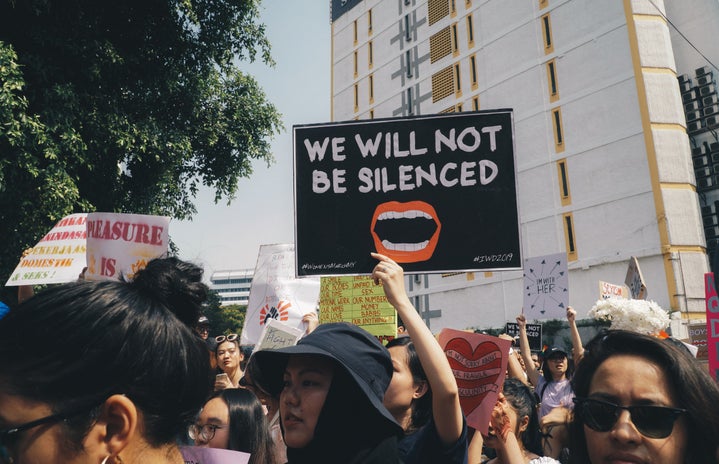A few weeks ago, the actress Lívia La Gatto exposed the threat she received from Red Pill’s coach, Thiago “Campari” Schutz, after a joke she made about the content of his videos. Although the satire made by the actress did not mention the name of Thiago Schutz, he contacted her demanding the removal of the content within 24 hours under the following threat: “After that, lawsuit or bullet. You must choose”.
After the exposure of the threat, a part of society began to question who Thiago Schutz is and what is the Red Pill movement. Far from being unknown, he has an Instagram account with 334k followers, which used to propagate misogynistic ideas. In a simplified way, misogyny is a feeling of aversion for the feminine, which is reflected in speeches and attitudes that aim to maintain gender inequalities.
Red Pill supporters stand up against a system they believe favors women. Some problematic lines of Thiago Schutz defend the female submission in relation to men, the praise of female virginity, and the belief that the male purpose in life is always superior to the female one. The scariest part is that this is just the tip of an iceberg of several masculinist movements.
What are masculinist movements and why should we take this more seriously?
The political scientist Bruna Camilo studies masculinist movements and brings the following definition in an exclusive interview to Her Campus Cásper Líbero: “The masculinist movement is an organization of men who have a total aversion to women, but that aversion manifests itself on many scales, not necessarily being the kind of hatred that wants to kill women. There are those men who want to mold women and define the ‘type’ of woman who deserves his company, which is very manifested by coach Thiago Schutz.”
Bruna also explains that masculism has its main origins in the United States, where there is a larger organization than in Brazil, and that there are several variations. Perhaps the most famous group is the “incel”, which is the “involuntary celibate”. They are more introspective people, many of them are gamers and non-standard boys who blame women for their lack of socialization and for their virginity. There is strong resentment and victimization.
There are the MGTOWs (“Men Going Their Own Way”), men who want to go their own way and think that women should be isolated from society because they are seen as self-serving. In this group, there are different degrees, which means that there are men who actually have relationships with women, but in a logic of revenge or just using them as sexual objects.
Moreover, Bruna Camilo indicates that when she completed her research, Red Pill was not actually seen as a movement. It is a term that came from the movie Matrix and brings the idea that men should take the “Red Pill” to wake up to reality, which would be to see that the world benefits women, that they have privileges, and that since women have conquered rights, the virility of men has fallen.
Throughout her study, the political scientist infiltrated groups of masculinist men and therefore she emphasizes that it is necessary to take these movements seriously: “These ideas reproduce hetero-cis-normative standards of how women should be, and they also promote a misogynistic speech that unfolds in violence […] Moreover, this generates a political issue. If we have politicians who believe in these ideas, what kind of public policy is voted on and carried out?”
How does the Internet enhance these speeches?
In an exclusive interview with Her Campus, Tainá Aguiar Junquilho, a researcher at the Institute of Technology and Society, adds that, on the internet, these discourses produce misinformation and go viral not only because of supporters but also because of the repercussions of those who think it is absurd.
Tainá Aguiar Junquilho reaffirmed some data to contrast the fake news spread by masculinist groups: “The United Nations indicated that Brazil ranks fifth in terms of violence against women; the Fluminense Federal University launched, in the week of International Women’s Day, the map of political gender violence on digital platforms, which analyzed 79 federal deputies and 12 senators, collecting alarming data of misogynistic messages that discourage women in the field of politics; still, it was estimated that a woman was raped every 10 minutes in 2021”.
In this sense, she points out that it is understandable that people share these videos to criticize and bring data that contradict this invented reality, but this generates engagement for these profiles: “In Brazil, the discussion regarding the regulation of platforms is related to these episodes that reinforce misinformation, prejudice and hate speech. The platforms’ business model favors an environment for the proliferation and monetization of these behaviors. The engagement attracts advertisers and this is a complex issue.”
How to break the alpha male stigma?
Fabíola Fanti, Ph.D. in Social Sciences, also interviewed by Her Campus, said that this might be the “million dollar question” and that there is not a single answer. For a part of the feminist movements, this would be done through the criminalization and punishment of every act of violence against women. Fabíola Fanti understands that we need to think in terms of children who are developing and also adults who have already been socialized into a misogynistic culture.
“For me, the main issue is education. It means it is important to promote debates on these issues at school, in addition to socializing boys and girls in a non-sexist way from an early age, at school, in the family, and in society. For those who are already adults, I think it is very important that, as they commit misogynistic acts, they are targets of campaigns, conversation circles, and education. There are people from the field of psychology who work with male aggressors to try to understand the motives behind these acts to deconstruct this man’s mentality in the sense of making him someone less sexist”, explains Fabíola.
Bruna Camilo agrees with the relevance of education and of groups whose objective is a less violent resocialization of men, beyond the exclusively punitive logic, which is achieved with public policies. Also, she highlights the importance of expanding gender studies:
“Usually, when someone talks about gender studies, you think of femininity and women, but gender studies is also about masculinity. When you start listening, researching, and talking about other forms of masculinity, you also end up giving people a space to see themselves. The hegemonic masculinity, this toxic one, that men cannot cry and have to behave in a certain way, victimizes men themselves. They are breeders and victims of this violence. When we understand this, we begin to develop other ways of living and deconstructing various forms of violence”.
———————————————–
The article above was edited by Clarissa Palácio.
Liked this type of content? Check Her Campus Cásper Líbero home page for more!


